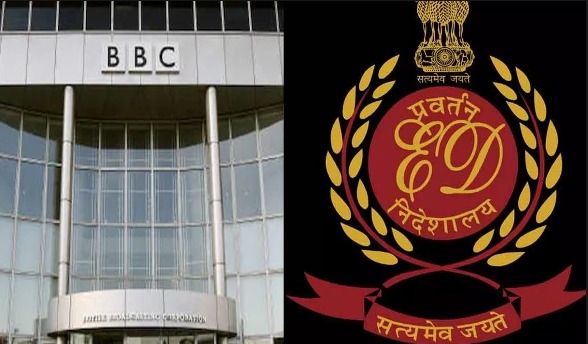
The Enforcement Directorate (ED) has filed a case against the British Broadcasting Corporation (BBC) India for alleged foreign exchange violations under the Foreign Exchange Management Act (FEMA).
The case was filed two weeks ago, and officials say they have questioned six employees, including one of BBC India’s directors.
The ED has also called for documents and the recording of statements from several firm leaders under FEMA regulations. The investigation is primarily focused on the company’s alleged violations of foreign direct investment (FDI).
“They called another BBC employee today, along with some documents, and questioning is still ongoing,” an official added.
Earlier in February, the Income-Tax Department conducted checks at the BBC’s offices in New Delhi and Mumbai, alleging “non-compliance” with transfer pricing regulations and huge profit diversion.
A survey, undertaken under Section 133A of the IT Act, is normally conducted as a preliminary to a search and seizure action and is limited to company premises. During a survey, I-T officials examine the books of accounts, bank accounts, cash, stock, and non-valuable papers.
The BBC surveys are looking into “manipulation of prices for unauthorized benefits, including tax advantages.” The I-T department said that BBC was non-compliant with transfer pricing standards; that it was persistently and purposefully violating transfer pricing guidelines.
According to the department, it purposely diverted a considerable amount of money and did not follow the arm’s length arrangement in the instance of profit allocation.
The tax department’s action came just weeks after the British broadcaster aired a documentary about the 2002 Gujarat riots titled ‘India: The Modi Question’ on January 17. The central government ordered YouTube and Twitter to remove links to the documentary on January 20, citing findings that it was “undermining India’s sovereignty and integrity” and had “the potential to adversely impact” the country’s “friendly relations with foreign states” and “public order within the country.”
Previously, the tax authorities had flagged distribution money collected by BBC World Distribution Ltd as taxable as royalty, as well as establishing whether it had a Permanent Establishment (PE) in India.
The Income Tax Appellate Tribunal’s Delhi bench found in December 2022 that the distribution revenue collected by the corporation from the distribution of BBC World News Channel in India is “not in the nature of royalty.”
It also stated that such revenue had already been presented to tax by the Indian corporation, BBC World India Pvt. Ltd, and that “no part of such income can again be attributed to the assessed notionally and taxed in India,” and hence, asked for deletion of such addition by the tax authorities for the 2007-08 and 2008-09 assessment years.




